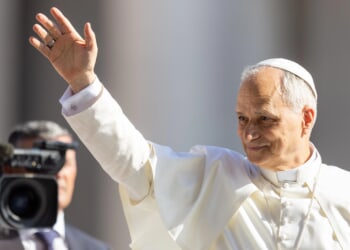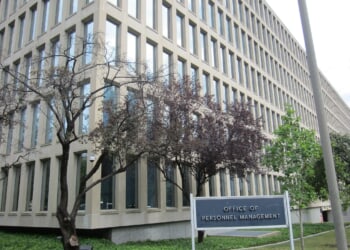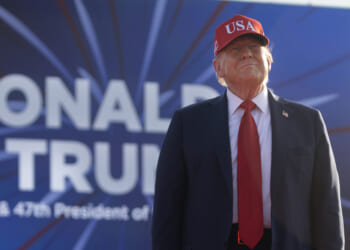Trump’s April 2 Liberation Day tariffs may be on their last leg, but should the Appeals Court rule that the President’s use of the International Economic Emergency Powers Act (IEEPA) to impose tariffs worldwide is illegal, the America First trade agenda will live on.
To date, Treasury Secretary Scott Bessent and even the president himself have not broken a sweat about the possibility of these tariffs being overturned. I assume they have a Plan B. And I am sure Bessent knows how bad it would be if he was counting on $300 billion a year in tariff revenue to fund tax cuts and suddenly it all gets watered down, with the threat of companies suing for tariff refunds.
To put that $300 billion figure in perspective, the U.S. collected $490 billion in corporate tax revenue in 2024. That figure is also more than what the two lowest tax brackets (under $50k) pay in taxes.
The Federal Appeals Court hearing took place on Thursday. Government lawyer Brett Shumate held his own against an 11 judge panel hired by Trump’s sworn enemies: George W. Bush, Barack Obama and Bill Clinton. (RELATED: Clock Ticking For US Trading Partners As Trump’s Tariff Deadline Approaches)
At the heart of the matter is whether the IEEPA statute allows for tariffs in the first place. Shumate obviously thinks so, as IEEPA was once used for tariffs in the Nixon era and found legal by a court. Still, Nixon’s use was against one company and one country; totally different from Trump’s strategy of using tariffs to balance trade, reindustrialize, and negotiate new commercial ties that favor U.S. investment over Asia.
The word “tariffs” appear nowhere in the IEEPA statute, but the statute does give the president the right to “impose import restrictions” and use the “regulation of importation” to solve the emergency – in this case the emergency of growing and persistent trade imbalances that threaten U.S. finances and its industrial base at a time of China’s rise as, arguably, America’s only real global rival. The courts and the lawyers are debating the intent of the IEEPA statute.
So far, the courts have ruled that Trump’s use of IEEPA tariffs was too broad and not intended by the law. If the Appeals Court agrees with lower court rulings, it will put the revenue portion of the Trump tariff strategy in jeopardy. Keep in mind that tariff revenue is an important part of Republican tax cuts.
These tariffs were in trouble a month after Liberation Day fireworks.
In May, a small New York City wine importer no one ever heard of with no real discernable political axe to grind – V.O.S. Selections – won a case against Trump in the Court of International Trade. The Court said that Trump could not use IEEPA to issue blanket tariffs willy-nilly across the globe. The White House immediately appealed. That appeal was heard on Thursday and now we wait for their decision. It could come any day now, or as late as September.
Should those tariffs be deemed illegal, every trade deal we have read about this summer is dead.
The EU tariffs of 15% are based on IEEPA tariffs. Every tariff agreement is IEEPA.
So what happens if the Appeals Court kills these tariffs?
First, I suspect Trump to go to the Supreme Court, and the Supreme Court will interpret “restrict imports” and “regulate importation” as a problem solvable with tariffs at the President’s discretion.
If not, then I suspect he will use a similar trade law called Section 122. That’s a 15% tariff for 150 days that needs Congressional approval to be extended. This could be a way to get the Republican-led Congress involved to legislate tariffs for revenue without having to come up with a bill.
Some companies may immediately try suing for a refund, but those refunds will be stalled until a final court decision. If those refunds did go out, it would be a big headache for Treasury and a bad look for Trump.
Still, the America First trade agenda will survive. For starters, if IEEPA is shot down, the trade agreement with Japan, South Korea and the EU, which saw automotive tariffs drop to 15% will immediately return to the original 25% rate under the Section 232 tariffs.
Ford CEO Jim Farley said on Bloomberg TV that the 15% tariff against his competition was too low; it needs to be 30% to 40% to make domestic manufacturing competitive.
Section 232, often called the “sectoral tariffs”, have been imposed on cars, car parts, steel, aluminum, and copper. There are more Section 232s in the works. These tariffs do not face any serious legal challenges.
However, the Section 232 tariffs would not be enough to bring in the revenue that Bessent and Trump want to help fund the Big Beautiful Bill tax cuts. Judging by Trump’s willingness to cut protective Section 232 tariffs on cars, tariffs as revenue seems to be more important at times.
And so a reversal of his tariff policy by the courts will wreck the math behind their revenue forecast. For this reason, the Trump administration will use all of its firepower to protect that revenue, or risk rising fiscal deficits, something even Wall Street will hate to see.
“I think the administration resorts to other sections in the tariff code that support executive power authority if they lose in the courts,” said Vladimir Signorelli, head of Bretton Woods Research, a macro forecasting firm in New Jersey.
“If that revenue from tariffs is lost, you now have a big gaping hole that even DOGE cuts can’t paper over.”
DOGE cuts to date are around $199 billion. “That to me guarantees they have a plan to fall back on other executive trade powers; otherwise you potentially damage the credit worthiness of the U.S. to fulfill its payment obligations.”
Kenneth Rapoza is a former Wall Street Journal reporter based in Brazil and a longtime chronicler of the BRIC economies for Forbes. He is now an industry analyst at the Coalition for a Prosperous America.
The views and opinions expressed in this commentary are those of the author and do not reflect the official position of the Daily Caller News Foundation.
All content created by the Daily Caller News Foundation, an independent and nonpartisan newswire service, is available without charge to any legitimate news publisher that can provide a large audience. All republished articles must include our logo, our reporter’s byline and their DCNF affiliation. For any questions about our guidelines or partnering with us, please contact licensing@dailycallernewsfoundation.org.


![Former Bravo Star Charged After Violent Assault Using a Rock-Filled Sock in Tennessee Walmart [WATCH]](https://www.right2024.com/wp-content/uploads/2025/07/Former-Bravo-Star-Charged-After-Violent-Assault-Using-a-Rock-Filled-350x250.jpg)




![Karoline Leavitt Levels CNN's Kaitlan Collins and Other Legacy Media Reporters [WATCH]](https://www.right2024.com/wp-content/uploads/2025/07/Karoline-Leavitt-Levels-CNNs-Kaitlan-Collins-and-Other-Legacy-Media-350x250.jpg)
![Man Arrested After Screaming at Senators During Big Beautiful Bill Debate [WATCH]](https://www.right2024.com/wp-content/uploads/2025/06/Man-Arrested-After-Screaming-at-Senators-During-Big-Beautiful-Bill-350x250.jpg)

![Illegal Alien Walked Free After Decapitating Woman, Abusing Corpse for Weeks [WATCH]](https://www.right2024.com/wp-content/uploads/2025/07/1753013138_Illegal-Alien-Walked-Free-After-Decapitating-Woman-Abusing-Corpse-for-350x250.jpg)






